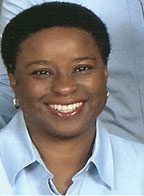

Helping young people with mental health challenges
By Jackie Collins Robinson, Ph.D.
Associate Professor in the Department of Psychology College of Social Sciences, Arts and Humanities Florida A&M University
The teen and young adult years are usually a time when young people are looking forward to college, promising careers, and bright futures. However, along the way, many will experience problems dealing with life’s stressors. In fact, many emotional and substance abuse issues in adulthood have their onset in childhood and adolescence. This leaves many of our youth unable to meet their full potential and results in billions of dollars in treatment and reduced productivity costs. Perhaps this picture could be changed if adults were better able to detect and respond to the needs of young people struggling with mental health and substance abuse problems. As a society, we are better equipped at addressing physical problems that require first aid than we are emotional troubles perhaps because we are less certain about how to help. We also think it important to learn CPR and first aid skills in case of physical emergencies but most people are limited in their ability to talk to someone struggling emotionally.
Not everyone is a natural like Antoinette Tuff, a school clerk, who on August 20, 2013 calmly talked to a would-be shooter, Michael Hill, as he contemplated turning his weapon on a school full of children and teachers. Following that incident I suspect that many people wondered if they would have found the words to say or if they would have had any idea what to do were they to find themselves talking to someone in emotional distress. Thankfully, most of us will never be in the situation that Ms. Tuff faced but each of us has already or will probably someday talk to a young person who is experiencing some emotional challenges.
It is important to note that 1) the vast majority of young people in emotional distress will never become violent and 2) most young people with mental health issues are more likely to be victims because of their emotional state than to victimize others.
So where can adults turn for help in learning how to detect that a young person is having emotional difficulty and, if so, how to talk to them and get them help?
Mental health literacy is a field that focuses on knowledge about mental health with an eye towards maintaining good mental health, preventing mental illness, and recognizing mental health symptoms in order to facilitate early intervention. To be mental health literate is to be aware of signs of emotional distress and knowledgeable about how to get help.
When young people, their parents, teachers, and others with whom they come in contact are mental health literate, there is an increased chance of early recognition of symptoms, appropriate help-seeking, and return to a mentally healthier state.
Youth Mental Health First Aid (YMHFA) USA is a program that gives adults tools they can use in recognizing when a young person is experiencing emotional difficulty and provides guidance on how to proceed to get them help.
Also available is training in Mental Health First Aid (MHFA), designed to help participants recognize and respond to adults with mental health challenges. First developed in Australia, YMHFA has been adapted for the United States population by the National Council for Community Behavioral Healthcare, the Maryland Department of Health and Mental Hygiene, and the Missouri Department of Mental Health.
To help make YMHFA a reality, funding was provided through grants from the Substance Abuse and Mental Health Services Administration (SAMHSA). The important of mental health literacy in our society has been recognized at the highest levels. For example, in his January 2013 speech on making our communities safer, President Obama gave support to mental health first aid training for teachers and others who work with young people. Indeed, studies have shown that among those who have taken the eight hour training in YMHFA, there has been significant improvement in mental health knowledge, reduction in stigmatizing attitudes, and willingness to help a young person experiencing emotional difficulty.
Youth Mental Health First Aid
1. Helps adults distinguish between typical adolescent changes and emotional issues that may need attention.
2. Helps adults detect changes in a young person’s ability to function.
3. Provides guidance to those who work with young people on how to get help when there are mental challenges.
As a mental health professional, educator, and YMHFA trainer, it is my hope that someday there will be as many people with mental health first aid training as there are people with physical first aid training. Reaching this milestone will indicate that our society focuses on the health and well being of the whole person. For more information about YMHFA, please go to http://www.mentalhealthfirstaid.org/cs/youth-mental-health-first-aid.
Jackie Collins Robinson, Ph.D. has been licensed by the state of Florida as a psychologist and school psychologist for over 21 years. She is an experienced practitioner who currently teaches and coordinates the graduate student internship program in the department of psychology at Florida A&M University in Tallahassee, Florida. She is also a certified YMHFA instructor.


Be the first to comment